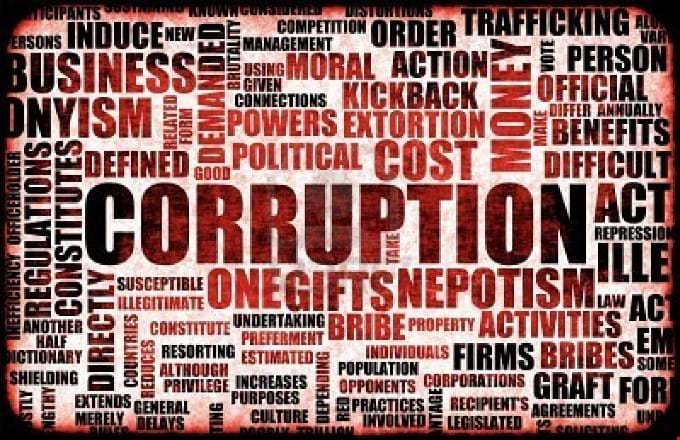While the world mourns the recent demise of Lee Kwan Yew whose successful transformation of Singapore during his tenure as Prime Minister should be instructive for our leaders, we also join the world in congratulating Nigeria on the achievement of an important developmental step in its political evolution. We must however note that President - Elect Buhari will need more help than goodwill to pick up from the point of Goodluck's exit. Corruption, conflict and a lack of investment has left Nigeria with one of the world's worst education systems, with grave implications for the West Africa sub - region. It has the highest number of children out of school and needs an additional 220,000 primary school teachers. The proportion of children from the poorest households going to primary school fell to 25 percent in 2013 according to the most recent UNESCO report.
In the late 1950s as African nations approached self- government, between Ghana and Nigeria we had only 8000 adults who had completed secondary school. This grim statistic lays bare the true challenge that successive governments have faced over the last 6 decades or so.
With the first fresh rays of the African sun each day, we seem to move further away from our best years as a nation. Those old enough become strangely sentimental about what we were. A “no-excuses” “can-do” nation. They wonder furtively with reluctant resignation about our future possibilities as a country, yet our future rests in the choices we made yesterday and make today for tomorrow. Many Ghanaians are increasingly post-partisan, for what good is any ideology if it does not provide the tools to improve the lot of the ordinary citizen?
Today, according to all objective outcome measures, our education system is an abysmal failure. We should be a partner in the OECD Programme for International Student Assessment (PISA) for 15 year olds so we have an objective evaluation of the ability of our students in the core competencies of math, science and reading in relation to other countries. On the most recent PISA (2012), Singapore was 2nd in Math and 3rd in Reading and Science. That is Lee Kwan Yew’s legacy. We cannot simply say we have a good education system without any reliable outcomes to support our assertions.
Education is the engine of development and the greatest gift a nation bequeaths to its young so that through knowledge and reason, they stand on the shoulders of their forbears and write an even more impressive record of achievements that adds to the history of the nation.
Through the ecstatic noise of celebration at independence in 1957, our founding president joined his greater vision for Africa with a simple plea to citizens of the new nation in his speech, saying:
'But also, as I pointed out, that also entails hard work. I am depending upon the millions of the country, and the chiefs and people, to help me to reshape the destiny of this country. We are prepared to pick it up and make it a nation that will be respected by every nation in the world. We know we are going to have difficult beginnings, but again, I'm relying upon your support...'
With each passing year, we have spiraled further and further away from that dream of proving that the Black Man can manage his own affairs.
Nkrumah's governments invested so much in education that by the mid- seventies, we were exporting so many highly educated citizens to both developed and underdeveloped countries. The failure of concurrent resource and infrastructural development to retain these graduates was a major factor in the brain drain. Essentially, Nkrumah's highly trained workforce materialised after his overthrow and their skills were not harnessed to service the development plans which had been shelved.
There is a collective failure in not being able to dispassionately evaluate the evolution of our educational system and its implications for our development. Even questions that should be left to professional educators like the length of time required for completion of the senior high school curriculum have been shamefully politicised over the years, to the great detriment of the country as a whole.
We have failed to live up to the dream of a free self-governing nation. We live in relative peace, suffering together rather than thriving and growing together. This is our reality. We are a naked nation that has squandered all its proverbial goal chances in the beautiful game we all live and die for.
There is barely any critical thinking in the national head space. There are few deliberative moments, just accusations and blame. There are few eager national debates championed by our future leaders for their very future has been wasted and so often stolen. There is no guiding philosophy of development born of our own strivings and desires as a people. There is no broad national vision or dream rooted in values like excellence, the pursuit of knowledge and public integrity. We still look outward to our former colonial masters as pseudo - partners. They must be tired of us. There are no carefully thought out solutions, just highly emotive knee-jerk responses to complex problems.
We must without fear and political partisanship re-examine the earliest years of the educational enterprise upon which everything else is superimposed. The rising JSS student is a functional illiterate and the present SHS graduate would never have made it through the gates of Legon or any of our major universities in decades past, so why do we deceive ourselves by pretending we are educating these children? It's like everything else. We live in filth and pretend our communities are clean. We have one of the highest rates of death from sanitation related causes in the world because no one is teaching 'hygiene' any more.
We must imbue our children with a sense of pride rooted in industry and knowledge from an early age. They are ignorant of their own history. How will they have any faith in their abilities?
We must go back to the drawing board and give birth to an education system that will prepare citizens for success over the coming 50 years or all our efforts will collapse in the hands of an ill - prepared generation through no fault of their own.
The first public demonstrations of excellence and a sound work ethic in a child's life are usually experienced or observed in a school. This is then generalized through healthy competition in the workplace and the community at large.
It is all well and good to preach free SHS or to build 200 new SHS units but what goes on within the walls of schools or on their campuses is the key to the future. How well are our teachers trained and supported? It doesn't matter what we are today as individuals, for we were all molded by teachers in our formative years; so the needs of educators are not to be taken for granted for they are most closely aligned with the future needs of society.
Recently, the accountant-general identified almost Ghc500m of misapplied or stolen state funds and what has the response of the leaders of both major parties been? Staff of the GES are caught extorting illegal fees from students before they sit for the BCCE. I don't see anyone going to jail. Do we think the youth of Ghana do not see all this? What lessons are they learning? It's ok to steal from the national purse and if you are caught, refund what you can and seemingly it's over.
A segment of the public is exposing all these crimes against the state but the political will from the executive, parliament and the judiciary to act is yet unborn, so private citizens are quite rightly going to the courts to protect the state from its failed leadership. The cynics feebly judge these actions as politically motivated but citizens are left with few options for seeking social justice. The inaction of the political class is perpetuating lawlessness in the land.
If we must continue to beg for funds while we turn a blind eye to our own pervasive corruption and its negative impact on internal revenue generation, how much self- respect and decency do we have as a people? We are a naked nation. We are the only people blind to this reality.
Through the lives of our leaders the young obtain the bulk of their civic education. What have we taught them thus far?
By 2050 there will be 9 billion people on this planet and the major issues will be energy, water and food security. The education of our youth should reflect this reality so they are spurred on to seek innovative solutions today for tomorrow's problems, for that is their future.
T. P. Manus Ulzen is Professor of Psychiatry and Behavioral Medicine at the University of Alabama School of Medicine (Tuscaloosa Campus).
tulzen@yahoo.com
javahillelmina.wordpress.com; twitter ID: @thaddeusulzen
In memory of Late Mrs.Christiana Ulzen, a teacher in her time.
April 15, 2015
Source:




 Excellent
Excellent








